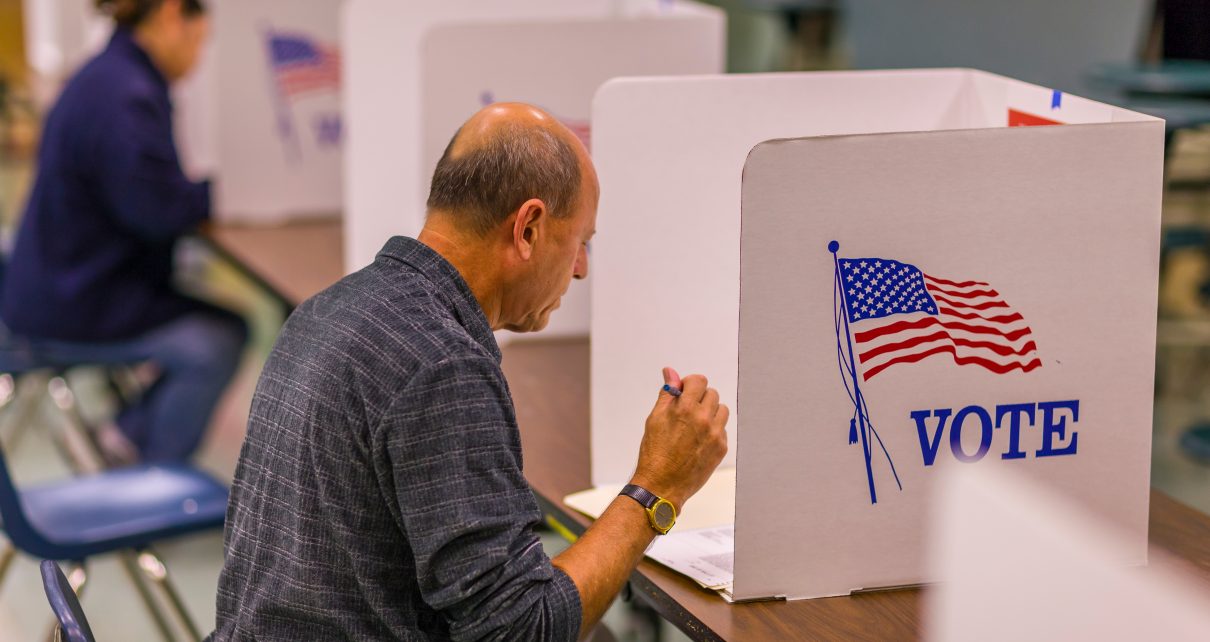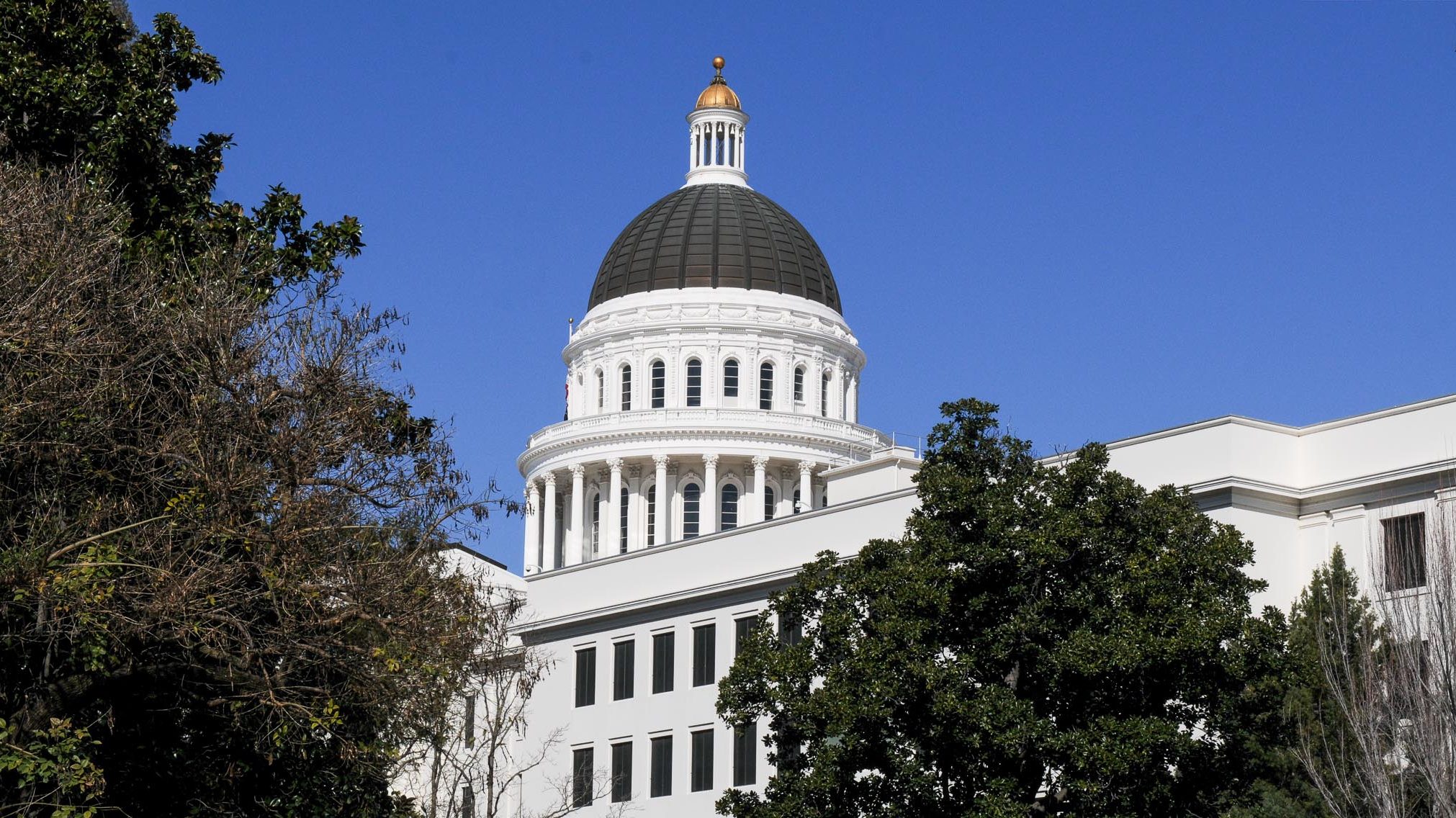
Voter at polls during presidential election, using paper ballots. (Photo: Rob Crandall/Shutterstock)
Mandatory High School Personal Finance Course Ballot Measure Filed with State
Proposal comes after two bills that had backed similar legislation failed to make it past Committees earlier this year
By Evan Symon, September 7, 2023 2:45 am
A new ballot measure proposal to make personal finance a required course for graduation from High School in California was filed with the state on Wednesday, with the aim of getting enough signatures in time to qualify for the November 2024 ballot.
Since the late 2010’s, the number of states requiring personal finance classes for high school graduation has skyrocketed. Fueled by a growing number of young Americans who are struggling financially and a huge disparity gap of the number of schools that offer personal finance classes in lower-income areas as compared to schools in higher income areas, every year this decade has seen a handful of states add the requirement to help bridge the personal finance gap. In 2023 alone, six states have approved mandatory personal finance classes, increasing the total nation-wide to 23.
Earlier this year in California, two bills, AB 984, authored by Assemblyman Kevin McCarthy (D-Sacramento), and SB 342, authored by Senator Kelly Seyarto (R-Murrieta) were both submitted to their respective houses for similar mandatory personal finance education classes. However, SB 342 failed to make it past a Senate Committee in March, with AB 984 going to the inactive file in May because of dwindling support. Despite the two bills not making it to September, the idea of such a requirement has remained popular. A recent Binder Research poll finding that 78% of all Californian voters being in favor of it, with strong support coming from Democrats and Republicans alike.
With so much support amongst voters, personal finance class advocacy groups Next Gen Personal Finance and Californians for Financial Education announced on Wednesday that they have filed to start up a ballot petition for the matter to go before voters next year.
“We are launching this initiative in hopes that California will join the 23 other states that guarantee high school students a personal finance course as a condition for high school graduation,” said Next Gen Personal Finance co-founder Tim Ranzetta. “Personal finance skills like budgeting, building and managing credit, and understanding options to finance career or college education are absolutely essential in the 21st century and it’s long past due that California guarantees this education for all students.
“This has always been a common sense, non-partisan idea. California has lagged behind the rest of the nation when it comes to personal finance education and this initiative would ensure that all students — regardless of where they go to school — have the equal opportunity to learn about personal finance skills.
“It’s not enough for a law to pass or for regulations to go through, but we’re all about successful implementation. Graduates of high schools with guaranteed financial education are 21 percent less likely to carry a balance on a credit card while in college. Students who took personal finance courses had higher credit scores and lower delinquency rates through age 22. Graduates of high schools with guaranteed financial education are also less likely to fall prey to high-cost predatory loans, such as payday loans, than their peers without guaranteed financial education.”
Support has already come from some state leaders, including State Superintendent Tony Thurmond.
“They’ve gone to great lengths to create the infrastructure for how our state can do more around personal finance,” said Thurmond “The timing is right, I think, for California.”
While there has been no formal opposition yet, many younger Californians may oppose the measure. According to several young adult groups the Globe spoke to on Wednesday, many understand personal finance, but are instead hampered with lower wages, student loans, and other issues that cause them financial distress, not the lack of financial knowledge.
“These people are treating us like we don’t know what a budget is or that we don’t know how to spend and save,” said Artemis, a co-leader of a student advocacy group in Southern California. “They see a new required class as a quick solution rather than forgiving federal student loans, installing better rent control, lowering health care costs, setting an interest cap on payday loans, or other measures that would help out. The full blame isn’t on us. The institutions have been failing us. A high school class is not a solution.”
More on the potential measure is expected to be announced soon, with supporters saying that they are prepared to spend millions to get it to the ballot next year.
- Farmers Insurance to Increase Number Of Homeowner & Renter Policies in California - December 12, 2024
- Gov. Newsom Announces April 29, 2025 Special Election Date for Two State Elections - December 12, 2024
- Safeway Announces Closure Of Fillmore District Store In SF Due To Safety Issues, Thefts - December 12, 2024




